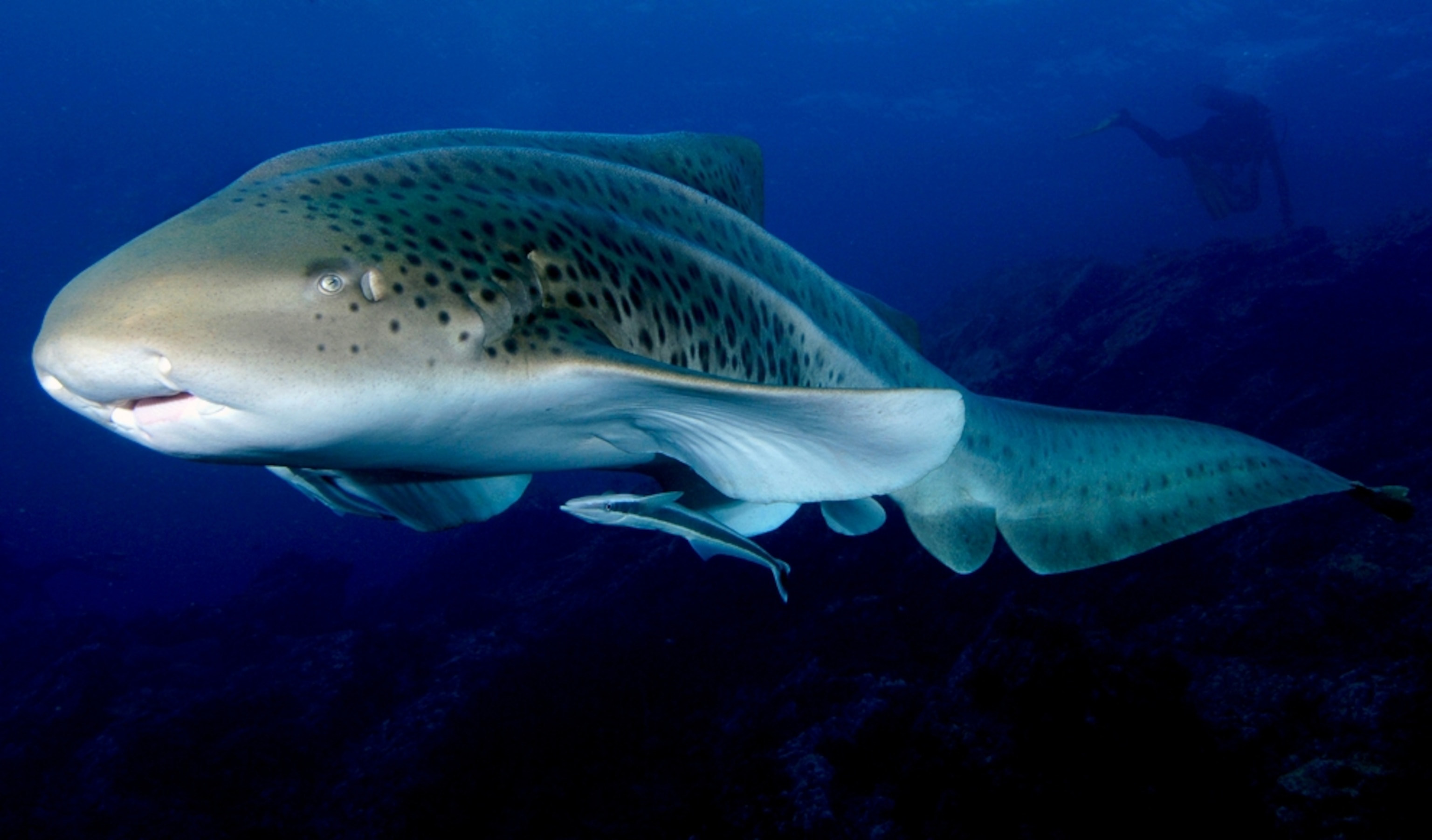
"Virgin Birth" Record Broken by Hotel Shark
A zebra shark at the "world's most luxurious hotel" has experienced four straight years of reproductive success—no male required.
She may be confined to a desert hotel, and far from any males, but a zebra shark named Zebedee is record-breakingly fertile.
The female shark, which lives in a restaurant aquarium in Dubai's Burj Al Arab, has experienced four straight years of "virgin births"—a feat never before documented among sharks, according to marine biologist David Robinson.
(Related: "Shark 'Virgin Birth' Confirmed.")
Experts at the resort—billed as the world's most luxurious—had seen Zebedee lay eggs before, but had assumed they held no offspring, because she is never in the presence of any male zebra sharks. Hotel staff first discovered she was reproducing asexually in 2007.
"We were actually moving the eggs, and one of the guys felt something move inside the egg, and we checked the eggs with light, and there were babies inside," Robinson, assistant aquarium operations manager at the Burj Al Arab, told the BBC.
"We went looking for it, but I don't think we were ever expecting to find it," he said. "So we're just awestruck."
(See a picture of the Burj Al Arab surrounded by lightning.)
Virgin Birth Not So Rare in Sharks?
Zebedee is reproducing parthenogenetically, meaning that embryos are developing from eggs unfertilized by male sperm. Although her offspring are genetically very similar to her, they aren't identical clones, since her DNA is recombined during the reproductive process.
Virgin births are known among many invertebrates and a variety of vertebrates, including hammerhead, blacktip, and bamboo sharks. (See "Hammerhead Shark Gave Virgin Birth in Omaha Zoo.")
"Everyone's looking for it in sharks now, and I think it's always there to be found," said marine biologist Demian Chapman of Stony Brook University in New York State.
"Since a very wide range of sharks can do it, I think it's reasonable to speculate that all sharks can do this."
(Related: "Virgin Birth Expected at Christmas—By Komodo Dragon.")
Evolutionary Edge
Virgin birth could be an evolutionary adaptation that allows species to squeak through tough times.
For example, Chapman said, "it could give sharks a bit of an edge when colonizing new habitats—they don't necessarily have to look for males in a place they want to live.
"It's not as good as finding a male, because females don't seem to produce as many offspring as compared to when they mate."
As perhaps the ultimate form of inbreeding, parthenogenesis also results in offspring with low genetic diversity, and therefore greater likelihood of immune systems unable to handle a variety of threats, among other potential side effects.
Even so, virgin birth "can be a way to persist in a difficult environment or when population density is low," he said.
(Also see "'Sex Puppeteers' Force Sex Change, Virgin Birth in Bugs via Genes.")
Wild Virgin Birth?
Though Zebedee is the only shark known to reproduce parthogenetically four years running, Chapman suspects that virgin birth is a common, if hidden, talent among sharks.
If a female shark's egg cells don't make contact with sperm, "a certain percentage of them will nevertheless develop into embryos via parthenogenesis," he guessed.
"I don't think there's a trigger—if you just leave them alone, it will happen."
It's not yet proven that virgin shark births take place the wild, but Chapman said DNA scans could do the job. Sexual reproduction results in offspring with two versions of every gene—one from each parent—while asexual reproduction leads to offspring with only one version of every gene.